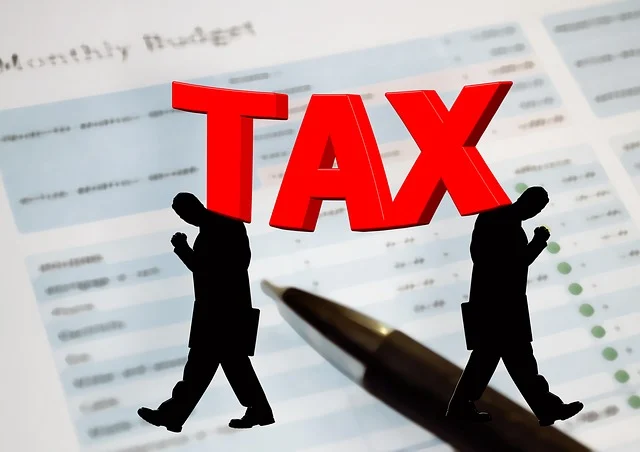Taxes and Deductions for Employees in Belgium: A Comprehensive Guide

Belgium has a complex tax system that can be challenging to navigate, especially for expatriates or newcomers. Understanding how taxes and deductions work is essential for employees to ensure compliance with Belgian law and optimize their financial situation. In this article, we’ll break down the key aspects of income taxation, social security contributions, and available deductions for employees in Belgium.
1. Overview of the Belgian Tax System
Belgium operates a progressive income tax system, meaning that higher earners pay a larger percentage of their income in taxes. The system is administered by regional and federal authorities, which adds layers of complexity due to varying rules across regions (Flanders, Wallonia, and Brussels).
Key Features:
- Progressive Income Tax Rates : Tax rates range from 25% to 50%, depending on your taxable income.
- Social Security Contributions : Employees and employers both contribute to social security funds, which finance healthcare, pensions, unemployment benefits, and other welfare programs.
- Regional Variations : Certain deductions and allowances may differ based on where you live within Belgium.
2. Income Tax Rates for Employees
Belgian income tax is calculated based on your gross annual income after applying certain allowances and deductions. Here’s an overview of the federal income tax brackets for 2023:
| Taxable Income (EUR) | Tax Rate (%) |
|---|---|
| Up to €13,960 | 25% |
| €13,961 – €24,840 | 40% |
| €24,841 – €42,370 | 45% |
| Above €42,370 | 50% |
These rates apply to the portion of your income falling within each bracket. For example, if your taxable income is €30,000, the first €13,960 will be taxed at 25%, the next €10,880 at 40%, and so on.
Additional Taxes:
- Municipal Taxes : Local municipalities impose additional taxes ranging from 0% to 9% on top of federal income tax.
- Crisis Contribution : A temporary surcharge introduced during economic downturns, currently capped at 1.5%.
3. Social Security Contributions
Both employees and employers are required to contribute to Belgium’s robust social security system. These contributions fund healthcare, pensions, unemployment insurance, and family benefits.
Employee Contributions:
Employees typically pay around 13.07% of their gross salary toward social security. However, this rate may vary slightly depending on specific circumstances, such as age or industry.
Employer Contributions:
Employers contribute significantly more—approximately 30-35% of an employee’s gross salary—to cover additional costs like workplace accident insurance and training funds.
Exemptions:
Certain groups, such as civil servants or self-employed individuals, may have different contribution rates or exemptions. It’s important to verify your status with your employer or a tax advisor.
4. Taxable vs. Non-Taxable Income
Not all forms of compensation are subject to taxation. Below is a breakdown of what constitutes taxable and non-taxable income in Belgium.
Taxable Income:
- Salaries and wages
- Bonuses, commissions, and overtime pay
- Stock options and equity awards
- Fringe benefits (e.g., company car usage)
Non-Taxable Income:
- Meal vouchers up to a specified limit (currently €8 per day)
- Reimbursements for business expenses
- Certain relocation allowances for expats
5. Common Deductions and Allowances
Belgium offers several deductions and allowances to reduce taxable income and lower overall tax liability. Some of the most common ones include:
Personal Allowance:
Every taxpayer receives a basic personal allowance, which reduces taxable income. For 2023, this amount is set at €9,140 .
Dependent Allowances:
If you financially support dependents (spouse, children, elderly parents), you may qualify for additional allowances:
- Children : Up to €3,000 per child under 12; higher amounts for older children or those with disabilities.
- Spouse/Partner : Varies based on the partner’s income level.
Professional Expenses:
Employees can deduct a flat rate of €4,860 annually for professional expenses without needing receipts. Alternatively, they can claim actual expenses if documented.
Pension Savings:
Contributions to approved pension savings plans are deductible up to €1,270 annually , reducing taxable income.
Mortgage Interest:
Homeowners can deduct mortgage interest payments on primary residences, subject to limits.
Commuting Costs:
Public transportation costs for commuting to work are fully deductible. If using a private vehicle, a standard mileage rate applies.
6. Special Considerations for Expats
Expatriates working in Belgium may benefit from special tax regimes designed to attract highly skilled workers and executives.
Lump-Sum Tax Regime:
Under certain conditions, expats can opt for a lump-sum tax regime, where only 30% of their Belgian-sourced income is taxed. This regime lasts for five years and requires approval from the tax authorities.
Foreign Income Exclusion:
Some expats may exclude foreign-source income from Belgian taxation, provided they meet residency and employment criteria.
Relocation Expenses:
Reasonable relocation costs incurred when moving to Belgium for work purposes are often tax-free.
7. Filing Your Tax Return
In Belgium, employees must file an annual tax return unless their employer handles all withholdings through the non-resident withholding tax system . Here’s what you need to know:
Deadlines:
- The deadline for filing tax returns is typically June 30th of the following year.
- Extensions may apply in exceptional cases.
Process:
- Most taxpayers use Form 281.10, provided by their employer, as the basis for their declaration.
- Online filing via the Tax-on-Web platform is mandatory for many residents.
Assistance:
If you’re unfamiliar with Belgian tax laws, consider hiring a certified accountant or tax advisor to help prepare and submit your return.
8. Tips for Managing Taxes Effectively
Here are some practical tips to help you stay on top of your tax obligations and maximize deductions:
- Keep Records : Maintain detailed records of all income, expenses, and supporting documents for deductions.
- Plan Ahead : Estimate your tax liability early in the year to avoid surprises and plan for payments.
- Leverage Deductions : Take full advantage of available deductions, such as pension savings and commuter costs.
- Seek Professional Help : Engage a tax consultant familiar with Belgian regulations, especially if you’re an expat or have complex finances.
- Stay Updated : Tax laws frequently change, so keep abreast of updates from the Belgian tax authority (FPS Finance ).



